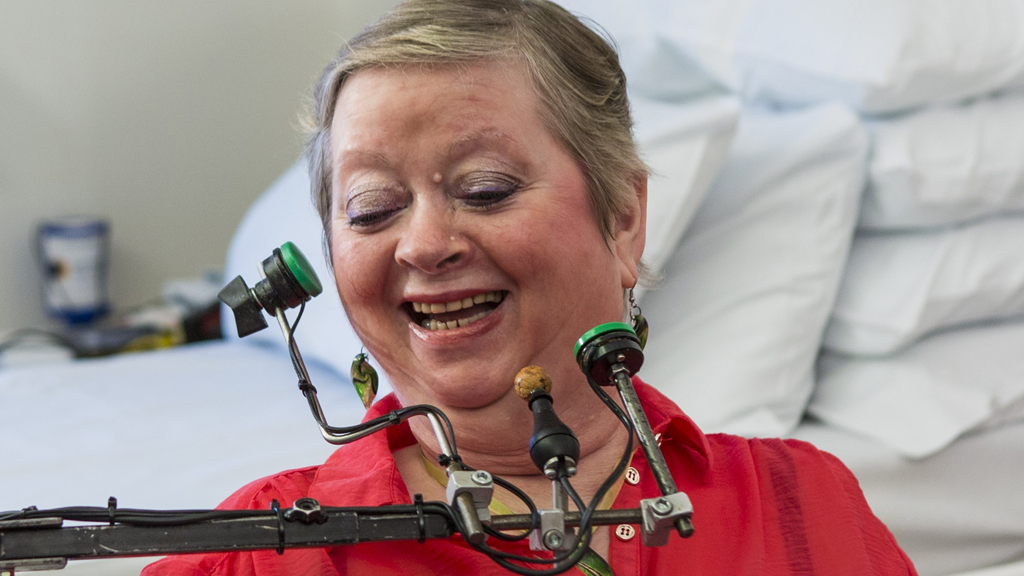Technology ‘brainwaves’ changing lives
How does technology transform the lives of people with serious disabilities? Channel 4 News meets two patients at the Royal Hospital for Neuro-disability who have been given a “new lease of life”.

It is estimated that more than one million people in the UK are living with disabilities as a result of brain injuries caused by accidents or illness.
Medical advances mean more people are surviving these life-changing events, but technological advances mean their quality of life can be greatly improved.
Among those making the most of modern gadgetry is Deirdre Tydd.
She has multiple sclerosis and cannot move her arms and legs, but a team at the Royal Hospital for Neuro-disability (RHN) has designed a special joystick which she can move with her chin to drive her wheelchair.
It’s like using my arms and legs all over again. It’s just fantastic, it’s unbelievable. Deirdre Tydd
The 64-year-old told Channel 4 News the device had given her a new lease of life: “It’s like using my arms and legs all over again. I’m never late for appointments … I get to physio on time, I get to church on time. It’s just fantastic, it’s unbelievable.”
While Deirdre uses technology to move around, other patients rely on it to communicate.
When Paul Carroll had a severe stroke he lost his ability to talk, but, thanks to modern technology, not his ability to communicate.
The 59-year-old uses an iPad attached to his wheelchair to engage in conversation by typing a sentence and instructing the tablet to voice it for him.
‘Making life worth living’
To mark brain awareness week, the RHN is launching a campaign to make the public more aware of what technology means to those living with brain injuries.
Jane Bache, who is head of assistive and rehabilitation technology at the hospital, said it can be life changing: “We’ve had feedback from people with motor neurone disease who have said it has made life worth living.
“It’s enabled them to carry on communicating with their loved ones right up to the end of their disease process which is so important, particularly when you’ve got young children.”
But life-changing technology comes at a cost, and that cost is not always met by the NHS.
The Royal Hospital for Neuro-disability, which is the biggest of its kind in the UK, needs to raise more than £2m per year to fund additional services, including some specialist technology.
“We do our bit of work enabling people to use the technology and the challenge comes getting the funding to get it purchased for them. It can be heart breaking if someone can actually use something but can’t get the funding to buy it,” Jane Bache told Channel 4 News.
That’s a view echoed by Deirdre Tydd who says she “dreads to think” what life would be like without the adapted technology which drives her wheelchair: “I’d be so scared, I just couldn’t imagine it, I really just couldn’t imagine it.”
-
Latest news
-
Tim Booth of the band James’ on agism in music, topping the charts and AI6m

-
As India goes to the polls in the world’s largest election – what do British-Indians think?6m

-
Tees Valley: Meet the candidates in one of the biggest contests coming up in May’s local elections4m

-
Keir Starmer says public sector reform will be a struggle7m

-
Nicola Sturgeon’s husband Peter Murrell charged with embezzlement of funds from SNP1m

-




